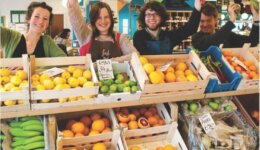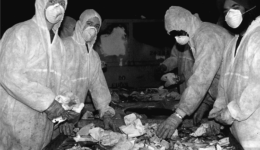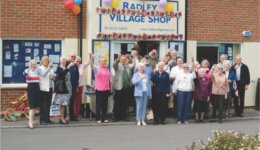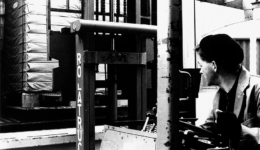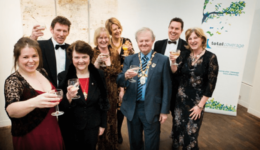New £6m fund partnership set to increase the availability of finance to smaller charities and social enterprises
Launching today, we are incredibly proud to be part of the new £6m fund partnership, the Thrive Together Fund
The new Thrive Together Fund will provide unrestricted funding to unlock the growth of small and medium sized charities and social enterprises.
This bold new fund is operated through a delivery partnership made up of Social Investment Business, the Architectural Heritage Fund, Co-operative and Community Finance, Fredericks Foundation, Groundwork and Homeless Link.
With £6m available, the Fund will combine grant funding with repayable finance providing a funding package of loan (75%) and grant (25%) to eligible organisations that are improving people’s lives, or the environment in which they live, in England only.
Through blending funding in this way, the partnership intends to expand the reach of social investment to smaller organisations or those based in disadvantaged areas, targeting funding where it can be most effective at promoting equitable outcomes, and ensuring that any interventions enhance the social and economic capacity of an area.
The Fund is supported by £3.6m from Access – The Foundation for Social Investment through their Enterprise Growth for Communities Programme, alongside a £3m investment by Social Investment Business Foundation. Weil, Gotshal & Manges LLP provided the legal support to create the fund.
Rob Benfield, Director of Grants and investments at Social Investment Business:
“There are many internal and external barriers to the growth of small and medium sized charities and social enterprises. We are delighted to be bringing together such an expert and experienced partnership to help tackle those barriers, and to provide appropriate finance and support where it is needed most.”
Neil Berry, Director of Programmes at Access – The Foundation for Social Investment:
“Blended finance is particularly effective at supporting small and medium sized charities and social enterprises to increase their impact, build their resilience and reach more people, particularly in underserved communities. We’re thrilled to be supporting the new Thrive Together Fund – backed by the Dormant Assets Scheme – unlocking growth and boosting economic output and productivity in communities across England.”
Matthew Mckeague, Chief Executive Officer at the Architectural Heritage Fund:
“The AHF is really pleased to be named as one of the delivery partners for the Thrive Together Fund. This is the first blended finance product for the AHF and its flexibility will assist funded organisations to improve their resilience and growth.
The focus of our work is supporting communities, particularly in economically disadvantaged areas, to revitalise historic buildings for community and local economic benefit – we welcome the fact that 50% of the funding will be invested in the 30% most deprived neighbourhoods in England, helping to reach a more diverse range of people.”
Tim Coomer, Community Business Manager at Co-op & Community Finance:
“We are delighted to be involved in the Thrive Together Fund, we have been supporting the Co-operative and Community Business sectors for 50 Years, and although we have been involved in partnership projects before, this is the first time we are able to offer blended finance across a wider breadth of the co-ops we support.
Paul Barry-Walsh, Founder at Fredericks Foundation:
“As a partner in the Thrive Together Fund, Fredericks will be able to provide greater support to more social enterprises and charities. Fredericks provides flexible funding to social enterprises through a revenue share arrangement. We have a long held commitment to supporting female entrepreneurs and have a particular focus on organisations that are led by or support excluded groups. Flexibility and affordability of funding are crucial to our customers. The blended finance offering of the Thrive Together Fund will complement our existing offer, allowing us to provide a greater range of flexible, affordable finance for our customers to help optimise their resilience and growth.”
Graham Duxbury, UK Chief Executive at Groundwork:
“Now more than ever it’s vital that social enterprises are provided with opportunities for growth. This programme will be integral in giving organisations control in how they want to develop and to create sustainable business models that benefits the environment and local communities. We look forward to working alongside the partnership through this initiative to ensure social enterprises can make their plans a reality.”
Rick Henderson, Chief Executive Officer at Homeless Link:
“Homeless Link has been involved in providing blended finance options to the homelessness sector since 2017. Having seen the positive impact it can have on organisations we are excited to be partnering on the Thrive Together Fund to support more of our members to access blended finance to grow and develop their impact.”
How to apply
Further details, including full eligibility criteria, product details and FAQs, visit: Thrive Together Fund

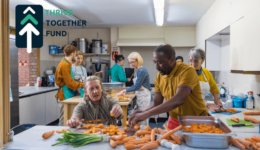
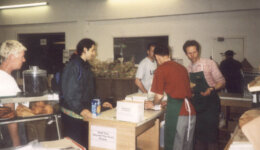
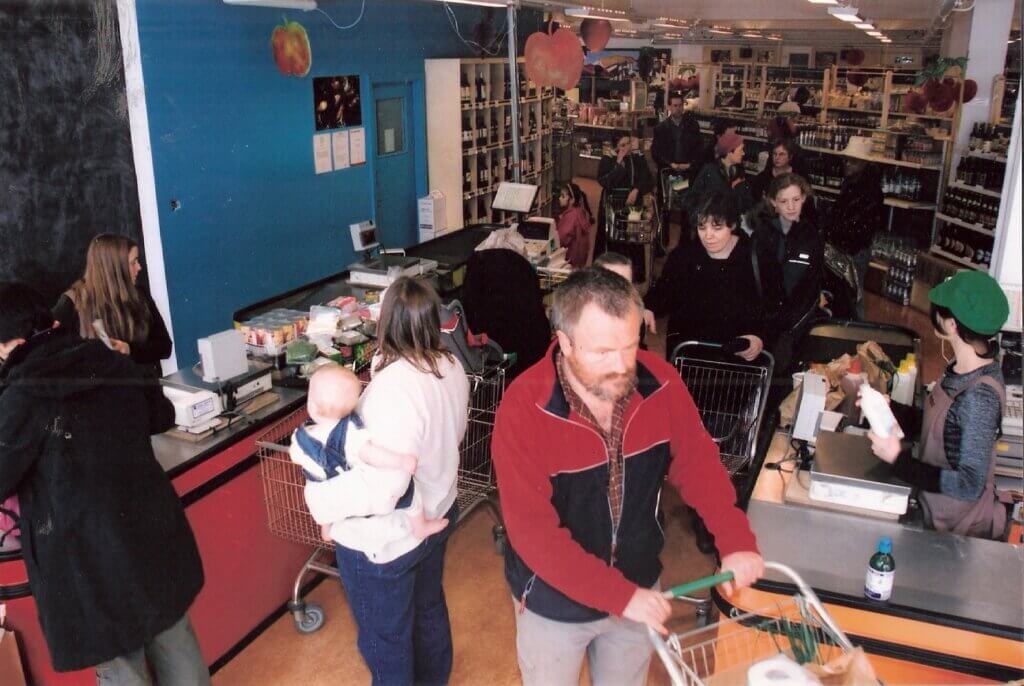
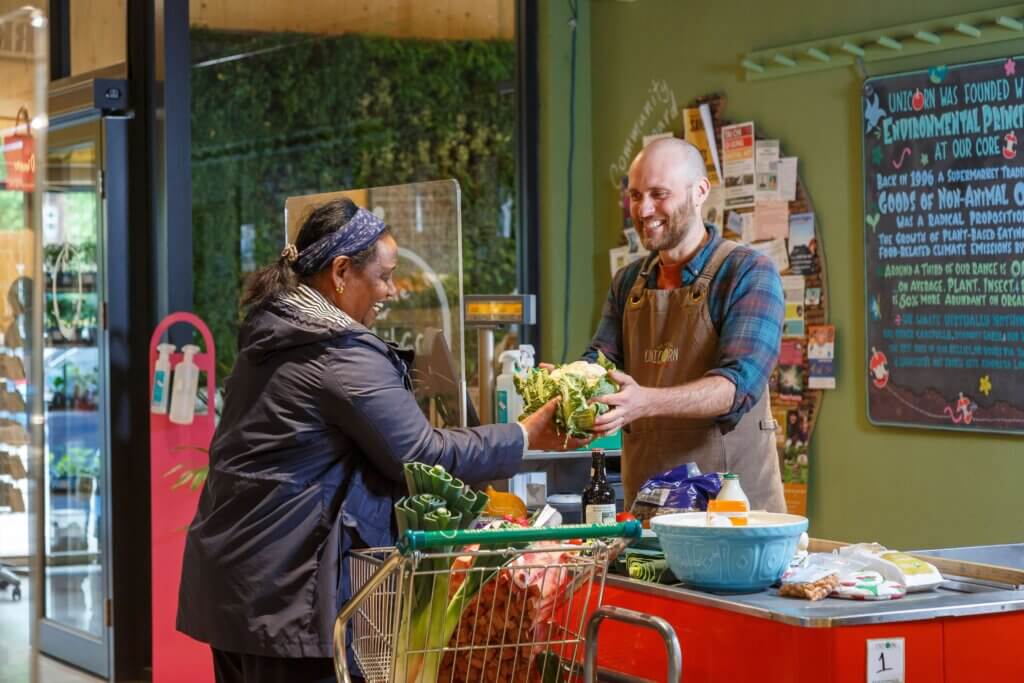

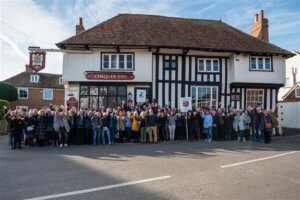 Re-opening in May 2019, the pub encountered some difficult times as the country was plunged into the Covid pandemic and lockdown resulting in the closure of the pub in January 2022. The community and the pub’s society has since rallied together and installed a new tenant responsible for the day-to-day management of the pub. Local businessman Nick Turner-Brown (who manages a number of other successful pubs in the region) has made much needed positive changes including a new and improved food menu as well as service quality the pub can be proud of ensuring long-term growth and a sustainable future for the pub and its residents.
Re-opening in May 2019, the pub encountered some difficult times as the country was plunged into the Covid pandemic and lockdown resulting in the closure of the pub in January 2022. The community and the pub’s society has since rallied together and installed a new tenant responsible for the day-to-day management of the pub. Local businessman Nick Turner-Brown (who manages a number of other successful pubs in the region) has made much needed positive changes including a new and improved food menu as well as service quality the pub can be proud of ensuring long-term growth and a sustainable future for the pub and its residents.